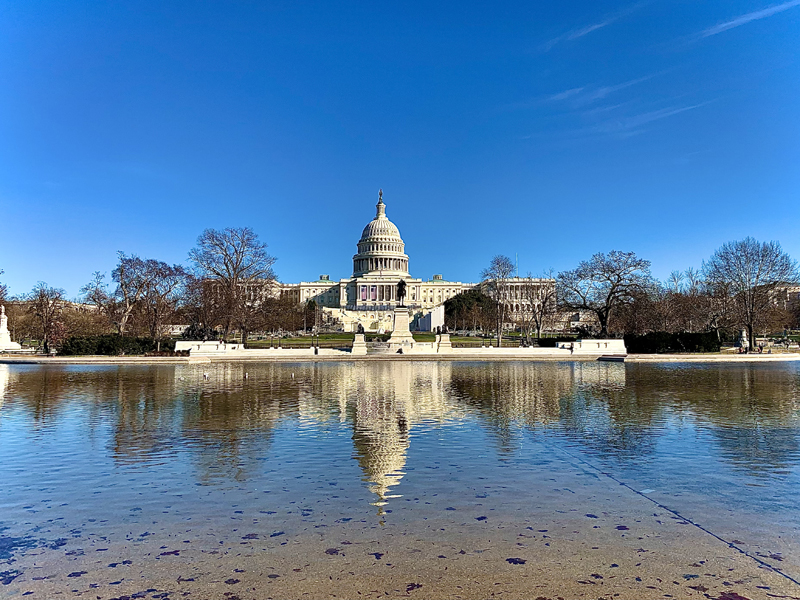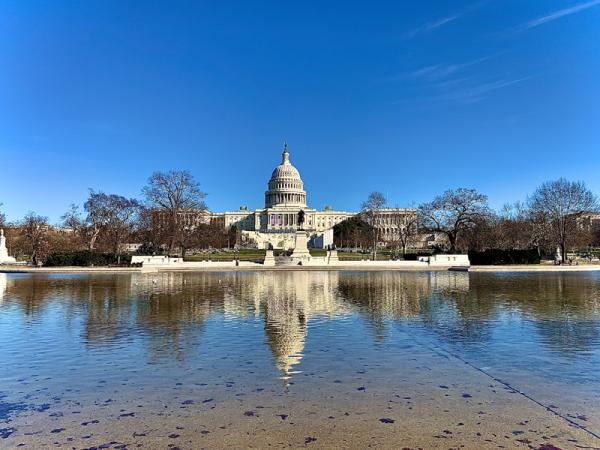KID REPORTERS’ NOTEBOOK
A Conversation With Jamie Raskin


The U.S. Capitol building was the scene of a deadly riot on January 6.
“Our government could have been thrown into absolute turmoil without the heroism of our officers and the bravery and courage of a lot of people in this room,” said United States Representative Jamie Raskin, a Democrat who represents Maryland’s 8th Congressional district.
Raskin was speaking to U.S. Senators at the Capitol building on February 13. As the lead impeachment manager for the House of Representatives, he argued that former President Donald J. Trump, a Republican, should be held accountable for his role in the deadly riot at the U.S. Capitol building on January 6. Raskin urged Senators to convict Trump of “incitement of insurrection,” which means encouraging a government overthrow.
The House had impeached Trump a week after the Capitol attack. It was the second time he had been impeached. Trump was charged with “abuse of power and obstruction of Congress” by the House in December 2019, and later acquitted by the Senate.
In the second impeachment trial, Trump was again acquitted by the Senate. A total of 57 Senators voted to convict the former President, including 7 Republicans. However, the Constitution requires a two-thirds majority for conviction.
I recently spoke with Raskin, who represents my Maryland district, via Zoom. I asked him about the charges brought against the former President, the Congressman’s role in leading the second trial, and how the country can move forward. Here are highlights from our conversation, which has been lightly edited.
How did your experience differ between the two impeachments and trials?
I wasn’t a manager for the first Senate impeachment trial, but I was very involved in the first impeachment in the House, presenting the case to the rules committee. I found the second impeachment extremely personal and emotional, not just for me, but for everybody involved. We were all victims of the horrific attack on January 6. The courtroom was a crime scene. We were on a very passionate and emotional journey to vindicate the Constitution and defend the country against this kind of attack.
How would you compare the first and second impeachment trials of former President Trump?
The second impeachment was far easier for people to understand because it involved a more vivid sequence of events. The impeachment team made a claim and backed it up using extensive video documentary evidence to explain to people what had happened. Also, I resolved that the impeachment management team would work together to tell a single story rather than have each impeachment manager speak only from their own point of view.
What did we learn from these past two impeachments and trials?
We learned that it’s very difficult for impeachment to not become a partisan affair. But we were able to show, in the second impeachment, that there is the possibility of creating some intellectual and moral common ground.
Had there been an anonymous vote, do you think the outcome of the Senate trial would have been different?
Yes. If we had had an anonymous vote, several Republican Senators told me that we would have had a verdict of guilty with an overwhelming majority. I would have loved it if there had been a secret ballot. We explored that possibility, but nobody in the Senate took the idea seriously. Every other vote that members cast in the Senate or in the House is public record, so having the impeachment vote be secret would have been a departure from the normal system. It would have been tough to get people to agree to deviate from the usual practice.
What can be done to better hold Presidents accountable for their actions during their final months in office?
It’s hard to think of a more impeachable offense than the one Donald Trump committed. While we were able to get a majority of the Senate to agree to convict, we were not able to get the two-thirds majority necessary for conviction. Some people have suggested removing the two-thirds requirement for conviction and just making it a simple majority, or a three-fifths vote, which would be a vote of 60 instead. These are possible constitutional reforms to consider. However, it would be difficult to make a change happen. What we really need is a change in peoples’ consciousness because impeachments have been made into such a partisan matter. People need to recognize that serving as an impeachment juror is a nonpartisan assignment.
Do you think the second impeachment brought the country together or moved us farther apart?
In the long run, the second impeachment brought the country together around the Constitution. It assembled the most robust bipartisan majority support around the rule of law for the conviction of the most lawless president in the history of the United States.
Read Kai’s story about his visit to Washington, D.C., after the January 6 attack on the Capitol.
Kid Reporter Lincoln Miller spoke with Professor Laurence Tribe, one of the top constitutional law scholars in the world, about President Donald J. Trump’s second impeachment trial.
Kid Reporter Teresa Fang spoke with journalist and Kids Press alum Nicholas Wu about the January 6 attack on the Capitol. You can read Teresa’s story here.
